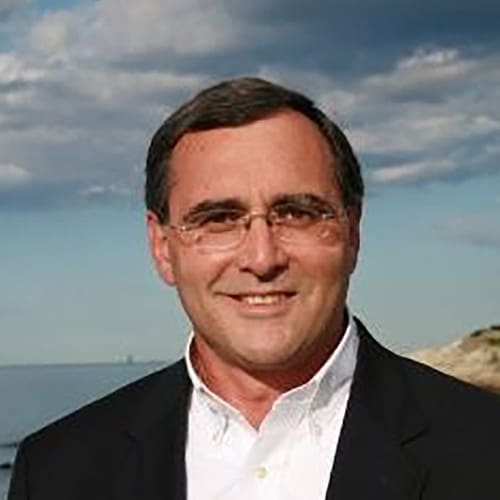It has been a decade since Christianity Today published my article, “Culture for Dummies: Ten Resources Christians Need for Understanding Today’s World.” Since that time, the Internet has become a dominant source of information, and social networking sites such as MySpace and YouTube were selected as Time magazine’s “Person of the Year.” We were in danger of being overwhelmed with information ten years ago. It is far worse, today. We cope by settling into our safe intellectual cliques—our favorite blog, cable channel, or online magazine— where our own views are reinforced and applauded. Without really trying, we can easily lose sight of the wider conversational horizon, and fail to listen to those who do not think as we do. It takes effort to maintain the big picture and to listen to those with whom we disagree.
Every pastor, teacher, parent, and mature apprentice of Jesus needs to develop cultural radar. We will find it hard to avoid being pressed into the world’s mold, if we are unaware of or unreflective on its contours. The power of culture is that it hides its influence by becoming the unseen matrix of our lives. Consequently, leaders must develop a system of reading and reflection that helps them keep the big picture in view—to see the forest when trees seem to crowd out the light.
Cultural radar must be reasonable in its demands on time and money. It should be varied and broad in its perspective and not one-sided or specialized in its analysis. It will incorporate all aspects of cultural formation, including those outside one’s interests or professional responsibility—politics, business, arts, and technology must all be covered. Elite culture must be balanced with popular culture, fringe with mainstream, and traditional with progressive.
There are some useful if more specialized and expensive publications such as The Chronicle of Higher Education, Adweek, Publishers Weekly, Variety, and Billboard which, depending on one’s calling, one may find indispensable. Some of the information they provide can be accessed via their websites. Arts & Letters Daily, a service of The Chronicle of Higher Education, provides invaluable free access to important articles, book reviews, and essays.
There are also a number of bookstores that provide discernment not available at Amazon. Their websites, newsletters, and catalogues are valuable tools of cultural reflection. Here are four that are worth knowing about: Eighth Day Books, Splintered Light Bookstore, Hearts & Minds Bookstore and the Inklings Bookshop.
First steps to discernment
Here, then, are a few resources worthy of consideration. They are selected because they make connections between their particular area of focus and the wider culture. None demands specialized knowledge . . .
- The Wilson Quarterly. The Wilson Quarterly is a publication of the Woodrow Wilson International Center for Scholars at the Smithsonian Institution in Washington, D.C. It provides a survey of the world of ideas. Utne Reader recently gave The Wilson Quarterly their top award for magazines;
- Utne Reader. Utne Reader is a bi-monthly compilation of the alternative press. Culling from a wide range of periodicals and “zines,” it provides a synthesis of alternative, progressive, and libertarian views. It is a synthesis of perspectives by those who tend to question authority and the status quo. Utne‘s motto is “Thinking ahead.” It is a particularly important publication for those who hold more traditional viewpoints;
- First Things. First Things is a leading journal of religion, culture, and public life. Conservative in its political perspectives and Catholic in its leanings, it has become the voice for the “public intellectual” concerned to “advance a religiously informed public philosophy for the ordering of society.” Each issue contains thoughtful book reviews as well as thoughtful reflections on religion in public life by Father Richard John Neuhaus;
- Books & Culture: A Christian Review Books & Culture looks at the entire world of culture through Christian eyes and takes seriously matters of faith. It includes book reviews, interviews, personality profiles, and film analyses in every issue. The publication represents the best of contemporary, evangelical scholarship;
- Wired. Wired is the cheerleader and champion of cyberspace, the voice of virtual reality. It is edited for leaders in the field of digital information including managers, creators and professionals in the computer, business, design, entertainment, media, and education industries. It focuses more on the cultural and social implications than MIT’s Technology Review;
- Seed: Science is Culture. Seed is a recent publication that seeks to connect science with society. Seed uses science as a lens through which to view American culture. With the unquestioned hegemony of science, Seed is an important voice of nascent scientism;
- Fast Company. Fast Company is the voice of a new generation of technologically savvy, socially conscious, interactive business leaders. When Thomas Frank wrote The Conquest of Cool: Business Culture, Counterculture, and the Rise of Hip Consumerism, he was writing about the audience of Fast Company. It represents a free market, technologically optimistic, and progressive worldview;
- Salvo Salvo is “dedicated to debunking the cultural myths that have undercut human dignity, all but destroyed the notions of virtue and morality, and slowly eroded our appetite for transcendence. It also seeks to recover the one worldview that actually works.” Salvo is a publication of The Crux Project, which sponsors a very provocative blog, “Signs of the Times.” Salvo is an important voice of traditionally minded members of “Generations X and Y”;
- Paste: Signs of Life in Music, Film & Culture. Paste makes Rolling Stone “so last year.” Paste is the hottest and fastest growing independently published entertainment magazine in the country, and recently named “Magazine of the Year” by PLUG Independent Music Awards. Its editorial policy places a priority on substance and song craft over crazes and commercialism;
- Mars Hill Audio. Mars Hill Audio is a bi-monthly audio magazine “committed to assisting Christians who desire to move from thoughtless consumption of contemporary culture to a vantage point of thoughtful engagement.” Here one finds sophisticated cultural commentary informed by Christian orthodoxy. Ken Myers, one the most astute Christian cultural critics, was for many years a producer and editor for NPR, working as the arts and humanities editor for Morning Edition and All Things Considered;
- Critique. Critique is a publication of Ransom ellowship and the ministry of Denis and Margie Haack. Its aim is to develop cultural discernment and to deepen personal discipleship. Each issue includes movie and book reviews, discernment exercises with discussion questions, book excerpts, poetry, and articles on how to understand and live faithfully in the midst of contemporary culture. For modelling cultural discernment, Critique stands alone.
Few people have the time or resources to purchase or read all of these publications. Nonetheless, they remain important tools for cultural analysis and discernment. Denis Haack writes:
If anything is certain for Christians today, it’s that we find ourselves living among people who do not share our deepest convictions and values. If we are to be faithful as Christians in such a pluralistic setting, we need to develop skill in discernment. An ability to respond winsomely to those who see things very differently than we do, instead of merely reacting to the ideas, values, and behaviour of the non-Christians around us. An ability, by God’s grace, to creatively chart a godly path through the maze of choices and options that confront us, even when we’re faced with situations and issues that aren’t specifically mentioned in the Scriptures.
Disagreement is a mark of accomplishment since disagreeing requires our listening and understanding those with whom we disagree. Discernment is a spiritual discipline calling for the practical application of truth and love.
“Desperately needed”: apprentices of Jesus who can disagree winsomely and live discerningly. Too often, we witness just the opposite.


